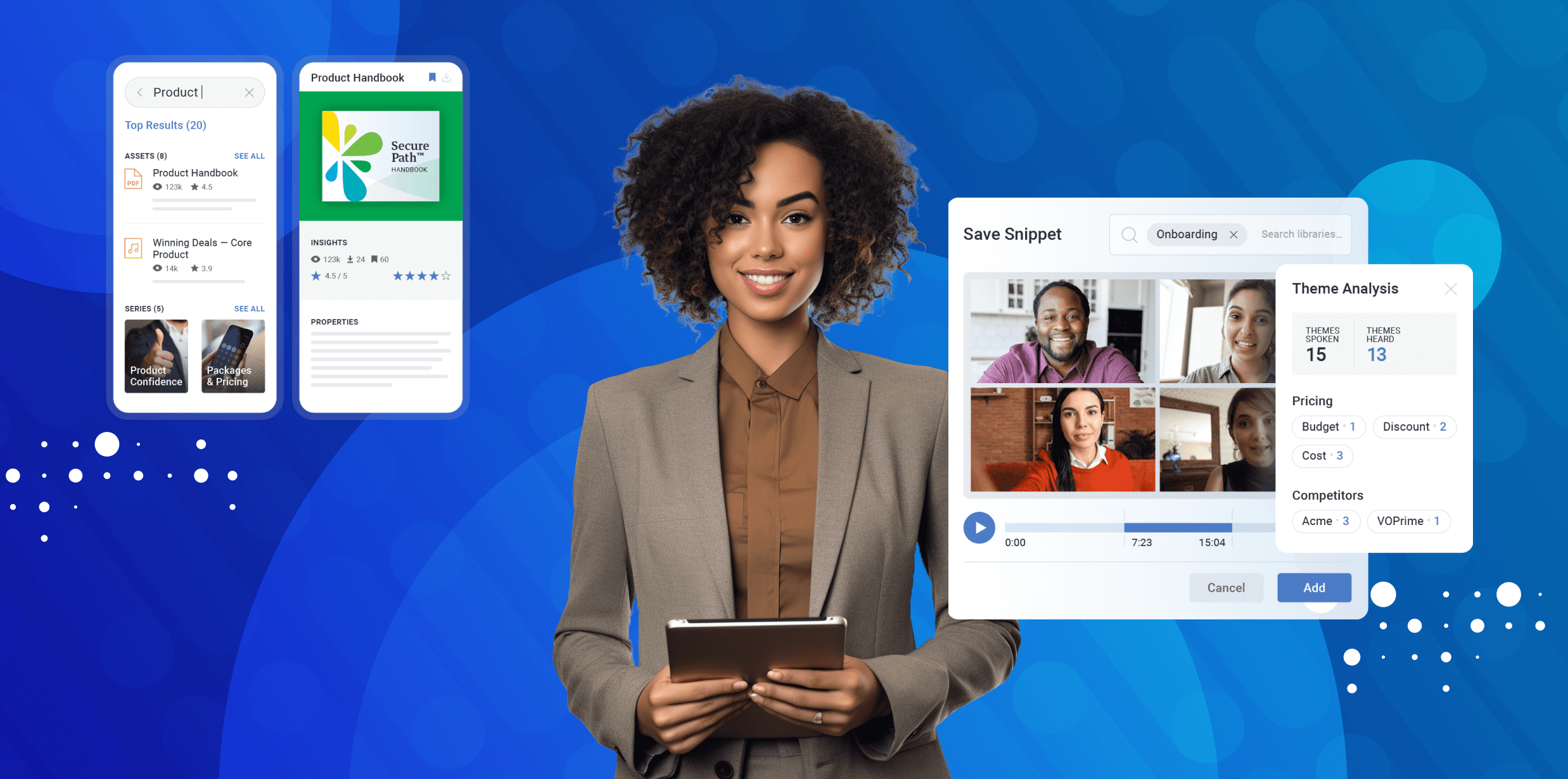In a recent webinar with Mindtickle and SiriusDecisions
,Peter Ostrow, Senior Research Director, Sales Enablement Strategies for SiriusDecisions, and Paulette Greene, Vice President of Professional Services for Mindtickle discussed how high performing organizations are approaching their sales knowledge transfer strategy.
In the webinar, they presented tips and action items on how to build an enablement model that takes into consideration the needs of the sellers, leverages the appropriate selling motion, and is integrated with a top-down sales learning strategy.
When it comes to delivering information and insights to buyers that help them make informed decisions, your sales team is probably your biggest and most valuable resource. Far too often, ad hoc approaches to educating sales reps result in knowledge gaps, and non-systemic learning approaches often don’t resonate and lead to a lack of scalability across the team. As you grow and adapt to changing market conditions, your company’s product messaging can develop and change. Your sellers should have the know-how to mold their approach and message in a systematic, deliberate way. The key to providing useful and ongoing learning opportunities comes down to methodical knowledge transfer.
SiriusDecisions defines knowledge transfer as “the process of enabling sales reps with the knowledge they need to apply during the buying process to accelerate deals in the pipeline and increase overall sales”. So, how do you go about figuring out the best practices that apply to your specific reps?
Without an emphasis on personalization that addresses the scope of experienced sellers versus those who are just starting out, a one-size-fits-all approach doesn’t result in successful sales knowledge transfer. A lack of customization for sales teams can create hurdles when it comes to buy-in and long-term motivation. Additionally, the lack of structure can interfere with collaboration across teams as messaging and knowledge transfer programs become lost in translation.
SiriusDecisions suggests managers tackle this by “promoting rep knowledge retention by demonstrating application, allowing reps to practice applying it, and arming coaches with criteria for feedback and monitoring results.” It’s important to keep your team engaged in consistent learning, and by committing to a sales enablement and readiness program, you can avoid those potential pitfalls.
Here’s the good news: you may actually already set up for success. The webinar goes into the details of SiriusDecisions research which shows that reps believe they should, in fact, spend more time learning. In the recent surveys by SiriusDecisions, findings indicated that reps want to spend more time on personal and professional development – so the buy-in is already there. Sales reps know the importance of fully understanding the products they sell but feel that they often lack resources beyond foundational knowledge. As a sales enablement leader, how do you provide your team with the right sales coaching support?
The truth is that many sales team leaders struggle from something of a “not-it” syndrome. Overwhelmed with making sure their reps are hitting quotas, managers often don’t spend the time to make sure to coach their reps on an ongoing basis. According to SiriusDecisions, 85% of high performing sales managers recognize the value of their reps understanding the company offering and spend time and additional focus on offering reps specific sales coaching and sales training on buyer personas.
Ultimately, your goal as a sales manager is to figure out and provide an approach that is consistent – one that enables your sales team with the knowledge needed to maximize their buyer interaction. If you align the general, required knowledge to specific activities that teach appropriate responses and selling motions, it’ll become much easier for both you and your team to create and ensure actionable and relevant learning outcomes.
According to Peter and Paulette, you can begin implementing changes to your sales productivity initiatives with a few action items. When it comes to sales enablement, start by:
- Clearly defining knowledge requirements and provide a learning strategy that supports the application of knowledge.
- Developing tools and job aids specific to learners and managers to reinforce competency attainment.
And when you combine your sales readiness goals with other teams in your organization, make sure to partner with sales enablement early in the process to ensure alignment to rep needs. Try thinking beyond delivering tactics and begin targeting reps with programs in the same way that buyers are targeted.
For a deep-dive into sales enablement in real time, watch the recording of their webinar here.



 By Poornima Mohandas
By Poornima Mohandas
 By Vivian Batman
By Vivian Batman
 By Christian Pieper
By Christian Pieper